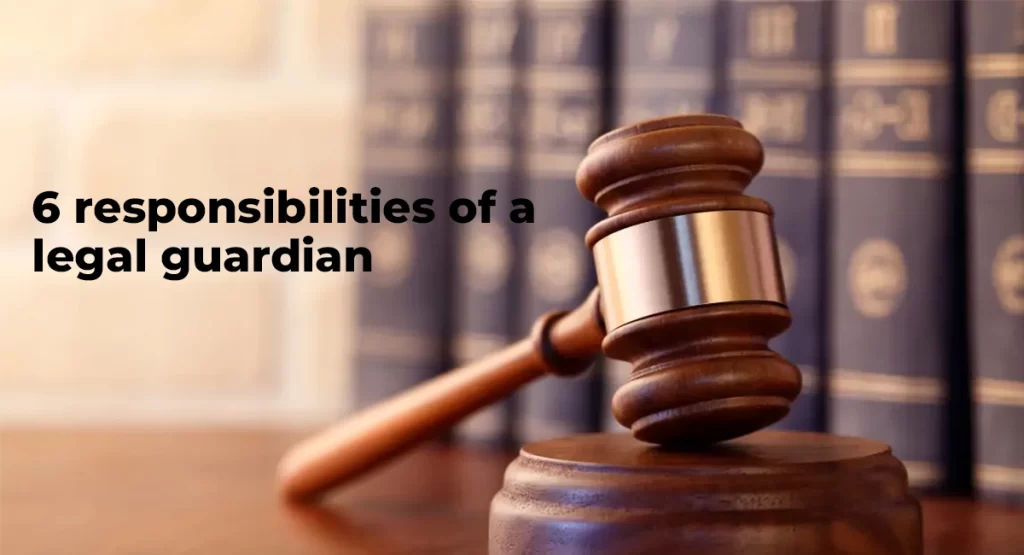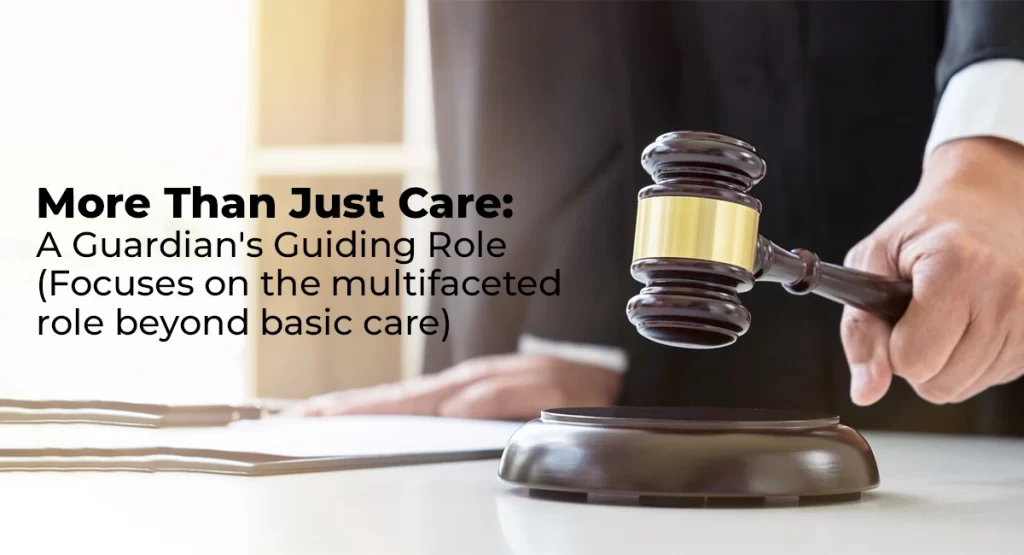Becoming a legal guardian is a significant decision. It’s a commitment to care for another person’s well-being, ensuring their physical and emotional needs are met. But what exactly does this responsibility entail? Let’s dive into the essential duties of a legal guardian and explore what it means to step up and be the champion someone needs.
Understanding Guardianship: More Than Just Care
Guardianship is a legal appointment that grants you the authority to make decisions on behalf of someone who is deemed incapable of doing so themselves. This can be due to various reasons, such as age (minor children), disability, or mental illness.
It’s important to understand that guardianship goes beyond simply providing care. While meeting basic needs is crucial, a guardian’s responsibilities encompass a wider range of duties:
- Decision-Making Power: You’ll have the legal authority to make choices regarding the ward’s (the person under your care) healthcare, education, residence, and even finances.
- Protection and Advocacy: You become the ward’s voice and protector. This means ensuring their safety, advocating for their best interests, and making decisions that align with their well-being.
- Following Court Orders: Guardianships are often overseen by the court. You’ll be responsible for following court-mandated guidelines and reporting requirements.
The Guardian’s Toolkit: Essential Responsibilities
The specific duties of a legal guardian can vary depending on the ward’s age, needs, and the court order. However, some core responsibilities apply in most cases:
- Daily Needs and Medical Care: This includes ensuring the ward has access to proper food, shelter, clothing, and hygiene. You’ll also be responsible for making medical decisions and authorizing necessary treatment.
- Education and Development: If the ward is a child, you’ll play a vital role in their education. This includes enrolling them in school, attending parent-teacher conferences, and ensuring they have the resources to succeed.
- Financial Management: Depending on the situation, you might be responsible for managing the ward’s finances, including paying bills, saving for their future, and making wise financial decisions.
- Creating a Safe and Supportive Environment: This could involve finding suitable housing, providing emotional support, and fostering a nurturing environment where the ward feels safe and respected.
Beyond the Basics: Tailoring Your Approach
Every ward is unique with individual needs and circumstances. As a guardian, you’ll need to tailor your approach based on these factors:
- Age of the Ward: The needs of a young child will differ vastly from those of an adult ward. You’ll need to adapt your caregiving style to match their developmental stage and capabilities.
- Reason for Guardianship: Understanding why guardianship was necessary will help you address the specific challenges faced by the ward. For instance, caring for someone with a disability might require additional resources or specialized knowledge.

Communication is Key: Building Trust and Respect
A successful guardianship hinges on open communication and mutual respect. Here are some tips to foster a positive relationship with your ward:
- Active Listening: Take the time to truly listen to your ward’s needs, concerns, and wishes.
- Open Communication: Encourage open and honest communication. Create a safe space where the ward feels comfortable expressing their thoughts and feelings.
- Respecting Autonomy: As much as possible, respect the ward’s autonomy and involve them in decision-making whenever appropriate.
The Rewards and Challenges of Guardianship
Being a legal guardian is a demanding yet incredibly rewarding experience. Here’s a glimpse into what awaits you on this journey:
- Challenges: The responsibilities can be overwhelming, and navigating complex situations can be stressful. You might face difficult choices and legal hurdles along the way.
- Rewards: The chance to make a positive impact on someone’s life is truly fulfilling. Witnessing your ward thrive and knowing you played a pivotal role in their well-being is an incredible reward.
Resources and Support: You’re Not Alone
The journey of a legal guardian doesn’t have to be walked alone. Here are some resources that can provide valuable support:
- Social Services Agencies: These agencies can offer guidance, support groups, and even financial assistance in some cases.
- Legal Aid: If facing legal complexities, seeking assistance from a lawyer who specializes in guardianship law can be helpful.
- Online Resources: Numerous online resources offer information, support groups, and helpful tips for guardians.
The Final Word: A Commitment to Care
Becoming a legal guardian is a significant commitment that requires dedication, patience, and a genuine desire to help someone in need. By understanding your responsibilities, building a strong relationship with your ward,

